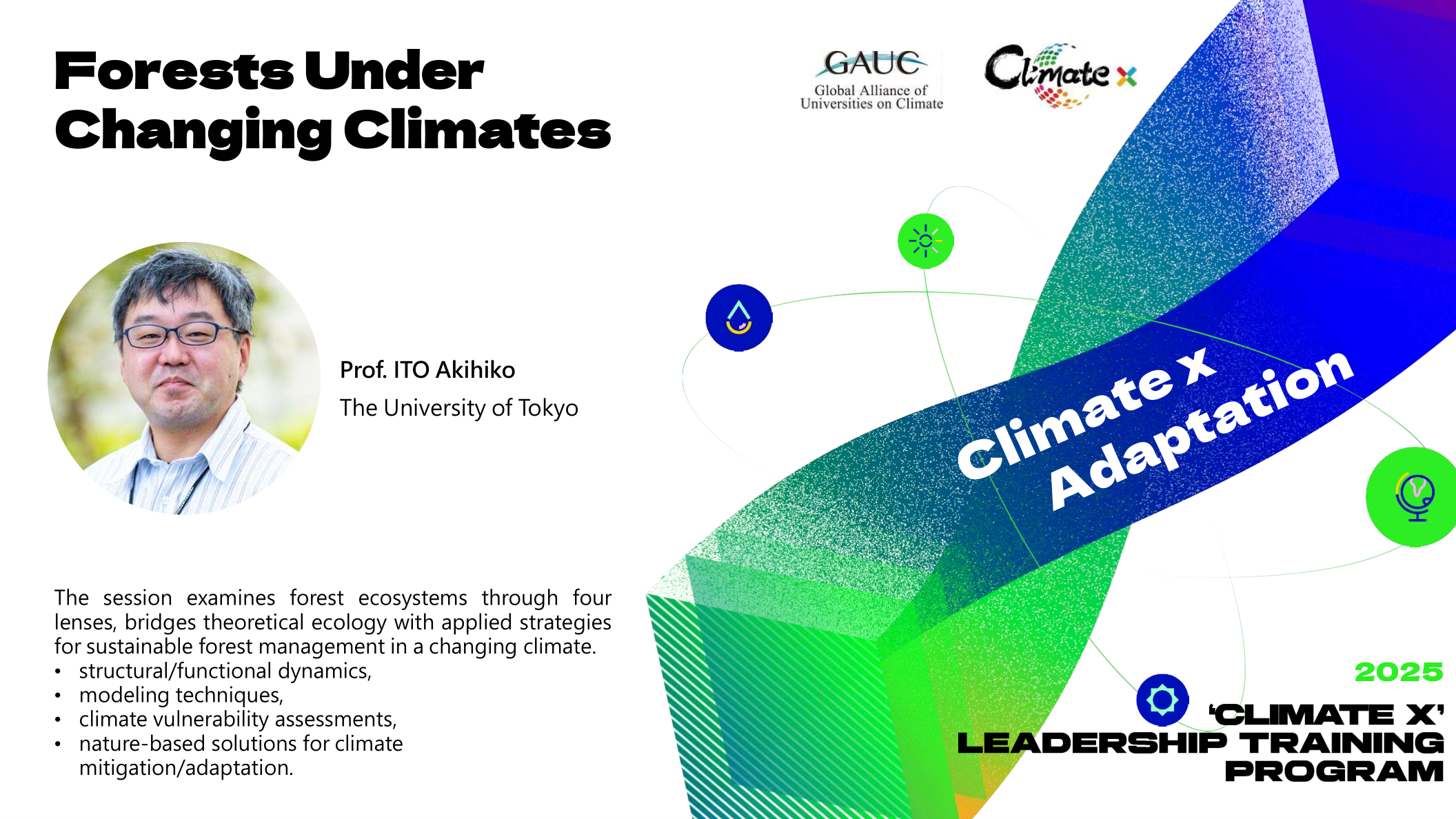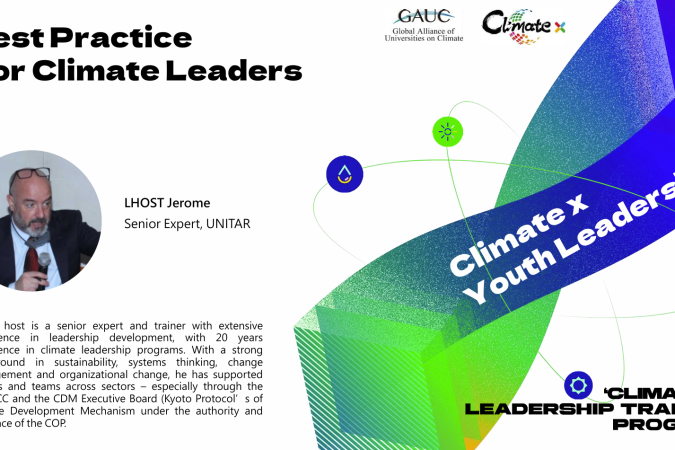Forests Under Changing Climates

🌍Please welcome Prof.ITO Akihito from the Graduate School of Agricultural and Life Sciences, the University of Tokyo
Prof.ITO develops terrestrial ecosystem models to study climate change. He worked at the Japan Agency for Marine-Earth Science and Technology (2001–2005) and the National Institute for Environmental Studies (2005–2023) before joining the University of Tokyo in 2023. His research examines the role of forests in climate mitigation, atmosphere-biosphere interactions, and climate impacts using Earth system models. He also works on greenhouse gas monitoring and integrated biosphere modeling, leveraging remote sensing for validation.
The session examines forest ecosystems through four lenses—structural and functional dynamics, modeling techniques, climate vulnerability assessments, and nature-based solutions for climate mitigation and adaptation—bridging theoretical ecology with applied strategies for sustainable forest management in a changing climate.
Course Features

Curriculum
- 1 Section
- 1 Lesson
- Lifetime
- Course Assignments3

Professor Akihiko Ito has long been working on the development and applications of a terrestrial ecosystem model for climate studies. He earned his Ph. D. degree from the Institute of Biological Sciences, the University of Tsukuba, in 2001. As a project researcher, he worked at the Japan Agency for Marine-Earth Science and Technology, Japan, from 2001 to 2005. Following that, he moved to the National Institute for Environmental Studies as a senior researcher of the Earth System Division until 2023. Now, he has been a faculty member of the University of Tokyo’s Graduate School of Agricultural and Life Sciences since 2023. His majors are ecological modelling, plant ecophysiology, biogeochemistry of carbon and nitrogen, and global environmental change. He has used the model to investigate the mechanisms and evaluate the potential of terrestrial ecosystems, especially forests, to mitigate ongoing climate change through optimal management. A part of the study was conducted using the Earth system model, allowing him to investigate the interactive feedback between the atmosphere and the biosphere. Also, the model has been used to assess the impacts of climate change on terrestrial ecosystems based on future scenarios. Recently, he has been working on the monitoring system of greenhouse gas budget from the city to global scales and on the development of an integrated biosphere model. In addition to field studies, satellite remote sensing becomes increasingly important for the development and validation of the model.
Courses you might be interested in
-
2 Lessons
-
2 Lessons
-
1 Lesson
-
1 Lesson





